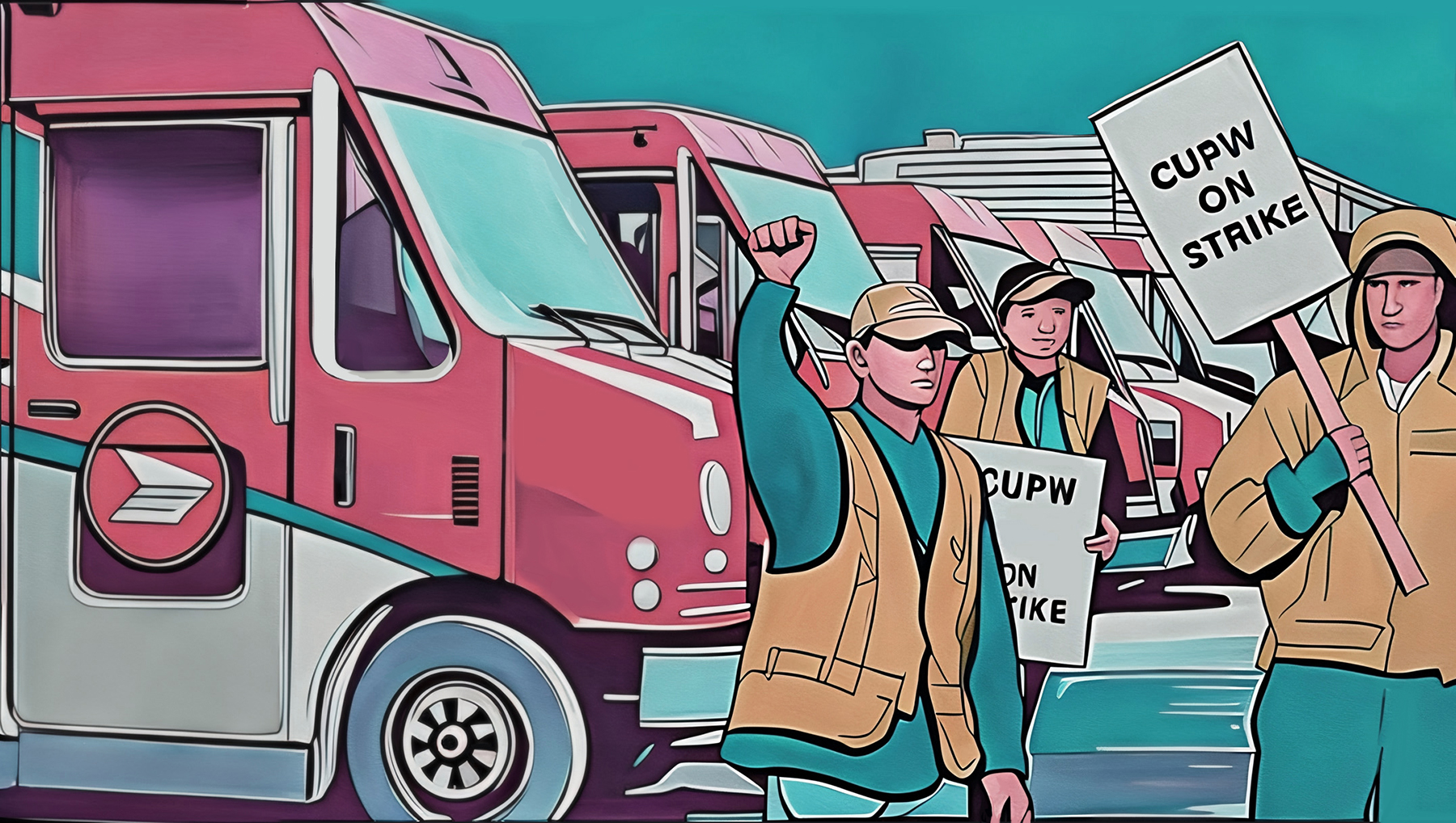55,000 Canada Post workers go on strike after a year of bargaining
The Canadian Union of Postal Workers and Canada Post negotiate working conditions while packages and mail remain at a standstill.
On November 15, Canada Post stopped delivering mail across Canada when approximately 55,000 of its workers went on strike. Represented by the Canadian Union of Postal Workers (CUPW), the workers involved in the nationwide strike called for better wages, safer working conditions, and other contract improvements.
Canada Post said it will not process or deliver any mail or parcels until the strike is over, and even then, mail service will likely take some time to return to normal.
The CUPW issued a 72-hour strike notice to Canada Post before walking off the job. On November 15, the CUPW issued a statement revealing that Canada Post “had the opportunity to prevent this strike, but it has refused to negotiate real solutions to the issues postal workers face every day.”
According to the same statement, Canada Post threatened to change its employees’ working conditions and leave them exposed to layoffs, leaving the union with “no choice” but to go on strike.
The impacts of this strike will be felt nationwide. Canada Post said that for the duration of the strike, no new mail or parcels will be accepted, and customers should expect delays for mail already in the postal network.
The strike is also affecting other major couriers. The union for Purolator, a subsidiary of Canada Post, said that its staff will not handle mail coming from Canada Post in an act of solidarity. Purolator expects, however, that their “network and service will not be impacted.”
On the other hand, FedEx does not expect to be impacted by the strike, while Amazon said only a small portion of their packages are delivered by Canada Post, where customers will be contacted if their orders are affected.
Vulnerable communities and those living in remote areas will also be affected. One Ottawa food bank is warning that the strike will affect their serving clients as the bank receives most of its financial donations via mail.
Small businesses across the country will also be hit particularly hard, as 80 per cent of these businesses rely on Canada Post for shipping goods, invoicing, and receiving payments, according to the Canadian Federation of Independent Business.
Some Canadian banks have issued statements saying that they still require their customers to make payments and meet financial obligations as normal, urging those who haven’t already to switch to online banking.
Government benefit cheques will not be affected by the strike, as the CUPW and Canada Post have agreed to continue delivering benefit cheques such as Old Age Security, the Canada Child Benefit, and the Canada Pension Plan.
Negotiations have been underway since the beginning of the strike, and though some consensus has been found, there is still a lot of ground to cover. A special mediator has been appointed to support both the Canada Post and the CUPW in their negotiations.
Labour Minister Steven MacKinnon is hoping for both parties to come to an agreement, with no plans to mandate the postal workers to end the strike. Although the federal government has the authority to end the strike through new legislation, as demonstrated during the postal work stoppages in 2011 and 2018, government officials have stated that there are currently no plans to pursue such measures.
Once the strike is over, Canada Post said all mail and parcels in their postal network will be “secured and delivered as quickly as possible on a first-in, first-out basis” and that delays should be expected even after the strike ends.

